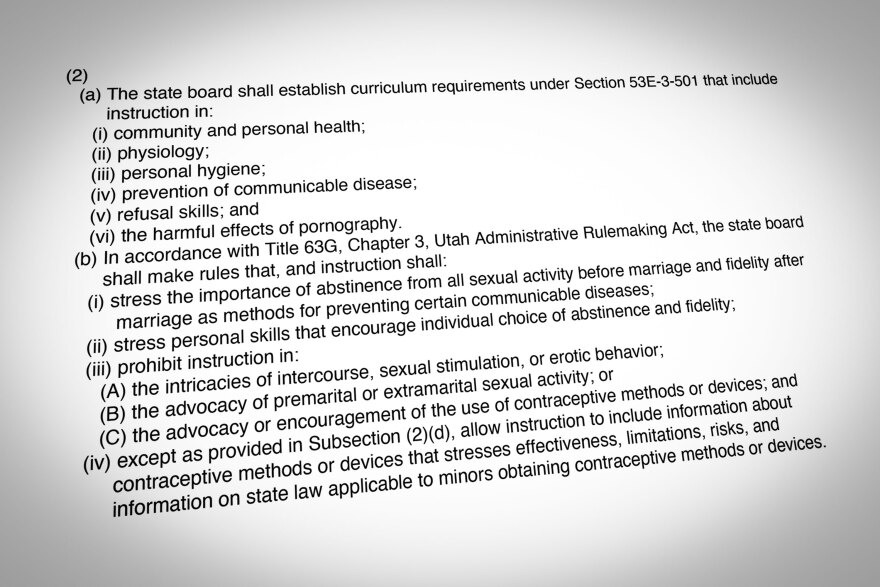Utah health teachers say they want help teaching human sexuality.
The Centers for Disease Control and Prevention released a report in August based on 2020 surveys of lead health education teachers and middle and high school principals about school health policies and practices.
Michael Friedrichs, Utah’s coordinator for the 2020 CDC survey, said they had a lower response rate than usual since educators were busy dealing with the onset of the COVID-19 pandemic, but the data is similar to previous years.
While the CDC report with national data was only just released, Utah-specific data was available to education and health officials last year. The CDC report says 72.1% of Utah lead health educators “wanted to receive professional development” on human sexuality, compared to 64.3% of health teachers surveyed nationally.
According to data provided by Friedrichs, 80.5% of high school lead health education teachers and 66.9% of middle school lead health education teachers said they “would like to receive professional development” on human sexuality. Other subjects teachers wanted help with included suicide prevention and mental health.
Jodi Parker, the health education specialist at the Utah State Board of Education, said she took the data and partnered with the University of Utah to create a series of webinars to educate health teachers on things like sexual harassment, cancer screenings and contraceptives. The goal was to provide teachers with up-to-date, medically accurate information.
“Webinars were released in chunks starting October 2021 and the final one May 2022. We do have plans for a few more,” Parker said.
Parker thinks one reason health educators wanted professional development is because the Utah Board of Education updated the state’s sexual education standards in 2019, the year before the survey was conducted.
Jenne Hamlin, a health teacher at West High School, has heard about the videos, but she hasn’t watched them.
“I have been teaching health for 24 years so I am pretty comfortable,” Hamlin said.
Hamlin said she does attend conferences put on by the Utah State Board of Education and SHAPE Utah to stay up-to-date on health education, and whether she watches the webinars depends on how much time she has.
“If I have a lot of extra assignments with the school (like sports or such), time becomes a premium commodity!”
Cedar Valley High School health teacher Jordan Peterson said the subject matter is comfortable for him, too. Peterson’s undergraduate degree is in health education, so he knows what he is legally allowed to teach in Utah, but thinks more training could be helpful for teachers on how to teach sensitive subjects, especially ones that could be construed as political.
“It’s more application-based training on how can I better navigate these difficult conversations in an equitable way, without getting myself into trouble with parents just because they disagree,” he said.
Hamlin thinks a lot of health teachers probably agree with that sentiment, that they understand the material but aren’t always sure how to teach more sensitive issues.
“Being at West, I am comfortable working with a very diverse student population,” Hamlin said. “But it never hurts to get others’ views on the tough [or] sensitive topics.”


